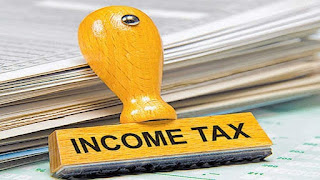Income tax planning for FY22: Here are things to remember during income tax planning
Managing taxes can be a tedious task for many. Filing an income tax return — which details the income earned by an assessee in a given period, say a financial year — is both mandatory and important for a working individual. A duly filed income tax return — also known as ITR — enables the tax authorities to assess how much you have already paid in the form of advance tax (through tax deducted or collected at source) and how much is owed to you as balance.
The first quarter of FY 2021-22 is gone and if you haven't done your income tax planning, then it's not too late as there is still eight and a half month left to do that. Here are some common tax-saving mistakes that one is likely to commit while doing last-minute tax-saving decisions.
1. Less chances of making a wrong move
Choosing the wrong investment in a hurry may end up generating lower returns for you and lock your money for a longer-term. For example, if you want to create a big corpus for your retirement, then investing in a 5-year tax-saving bank FD or NSC will not solve your purpose. Similarly investing in Ulip for a goal which is around five years, may not give you the desired result. But, if you start planning your tax-saving investments from now, there are lower chances of making a wrong move.
2. Not linking investments to goals
Typically when people invest in tax-saving instruments in a hurry they forget to link these investments with their goals, which in future, costs them a lot. If you are investing in tax-saving investments such as PPF, EPF, Ulips, life insurance, ELSS, which are long-term in nature, it is important to link these investments to a particular long-term future goal and do not exit the investment mid-way before reaching the desired goal. Even when you invest in ELSS, which has the shortest lock-in period, you need to link it with a particular goal and can extend it till you get the desired amount for your goal. You can also consider topping-up your ELSS investments with additional amount when markets see significant corrections.
3. Not considering new tax regime
Starting from the financial year 2020-21, taxpayers will have an alternate option while filing income tax return. In addition to the old tax regime, one may file ITR under new tax regime, at concessional rates if they do not want to make investments under the popular Section 80C of the Income Tax Act. The new regime allows taxpayers to reduce their tax liability without availing benefits under Section 24B and Section 80C by paying tax at lower slab rates. Therefore, as a taxpayer one needs to calculate tax liability under both tax regimes before proceedings with tax planning.
4. Choosing ELSS funds based on recent performance
Many taxpayers select ELSS funds that come with Section 80C tax benefit, based on only 1-year and 2-year performance. One should note that one particular MF scheme can not remain the top performing scheme forever. Every year a different MF scheme tops the return chart. So one should avoid the mistake of picking the top-performers of current year rather they should look at other factors like returns over a period of 10-years, risk-adjusted return, maximum portfolio drawdown etc.
5. Ignoring Section 80D and other benefits
In addition to Section 80C and Section 24B tax saving options, there are certain other ways to save tax. Your health insurance premium and interest payment on an education loan can also help you save tax. Secondly, principal repayment towards home loan also qualifies for tax deduction under Section 80C. You should make use of these tax provisions while planning your tax-saving investments.
Source:https://www.timesnownews.com/business-economy/personal-finance/income-tax/article/income-tax-planning-for-fy22-here-are-things-to-remember-during-i
Download our App to get knowledge updates::: https://play.google.com/store/apps/details?id=com.app.gstmitra
Join Our Telegram Channel for more updates:https://t.me/praveengst



Comments
Post a Comment